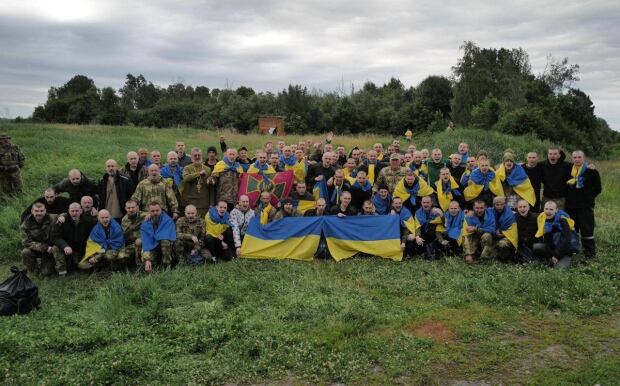
President Zelenskyy says a total of 3,135 Ukrainians were freed from Russian captivity and hopes exchanges continue.
Russia and Ukraine have exchanged 100 prisoners of war (POWs) each following mediation by the United Arab Emirates.
In announcing the exchange as a “success”, the Gulf nation’s Ministry of Foreign Affairs said on Friday that it was its third mediation effort between Moscow and Kyiv since December as it called for dialogue and de-escalation.
Ukrainian President Volodymyr Zelenskyy said his country “will make every effort to continue prisoner exchanges”, in a Friday post on X.
Russia’s Ministry of Defence, in a post on Telegram, noted the UAE’s “humanitarian mediation”.
So far, 3,135 Ukrainian POWs have been freed from Russian captivity, Zelenskyy said on social media on Thursday night.
Kyrylo Budanov, head of the intelligence directorate at the Ukrainian Ministry of Defence, urged Ukrainians to disregard scepticism about the time involved in a complicated process.
“As you can see, it has taken a bit of time, but the only thing that matters is the result. Look over there and you have the answer to your question,” Budanov said at the undisclosed site of the servicemen’s return.

In January, the two countries exchanged 195 POWs each, in the first prisoner swap since the crash of a Russian military transport plane that Moscow said was carrying 65 Ukrainian soldiers.
The Il-76 transport plane was downed in Russia’s Belgorod region. Russian President Vladimir Putin accused Ukraine of downing the plane using a US Patriot missile.
Ukraine has neither confirmed nor denied that it downed the plane and has demanded proof of who was on board.
Both sides have carried out periodic prisoner swaps via intermediaries since the war began nearly two years ago, despite the absence of any peace talks between them since the early months of the conflict.
The biggest exchange was on January 3, when they traded a total of 478 captives following mediation by the UAE.
Putin warned in an interview that defeating Russia in Ukraine was “impossible by definition”, but insisted he was not seeking to expand the war to neighbouring countries such as Poland and Latvia.
He repeated his claim that invading Ukraine was necessary to stop the country from threatening Russia by joining NATO, denied that he had territorial ambitions across Europe, and insisted he would only send troops into neighbouring countries if attacked first.






